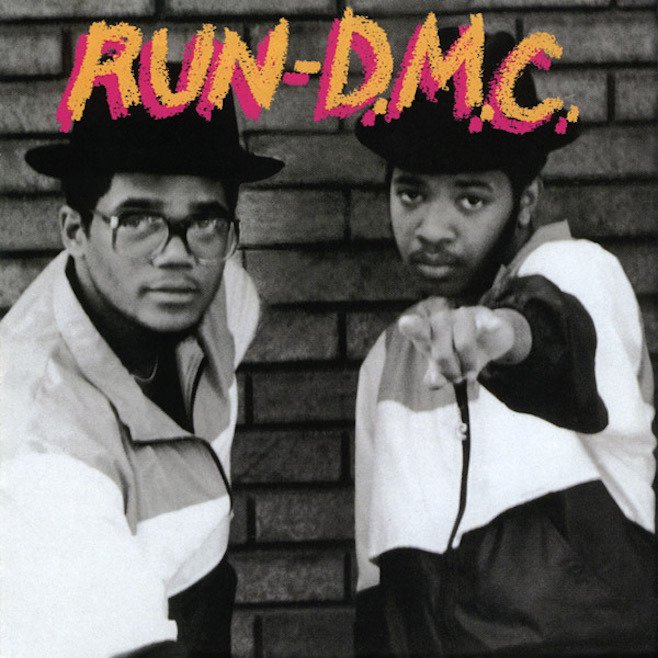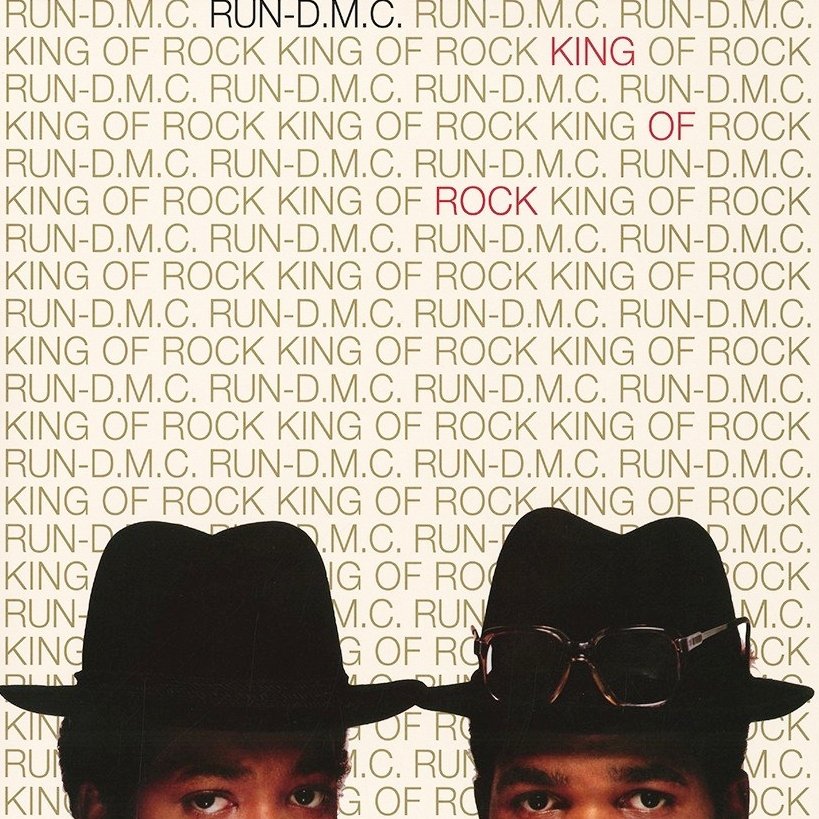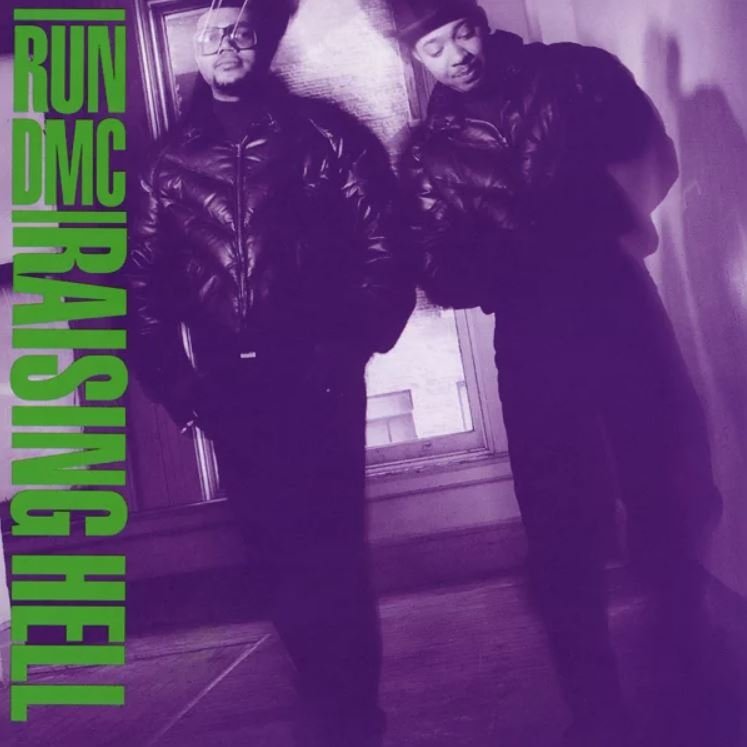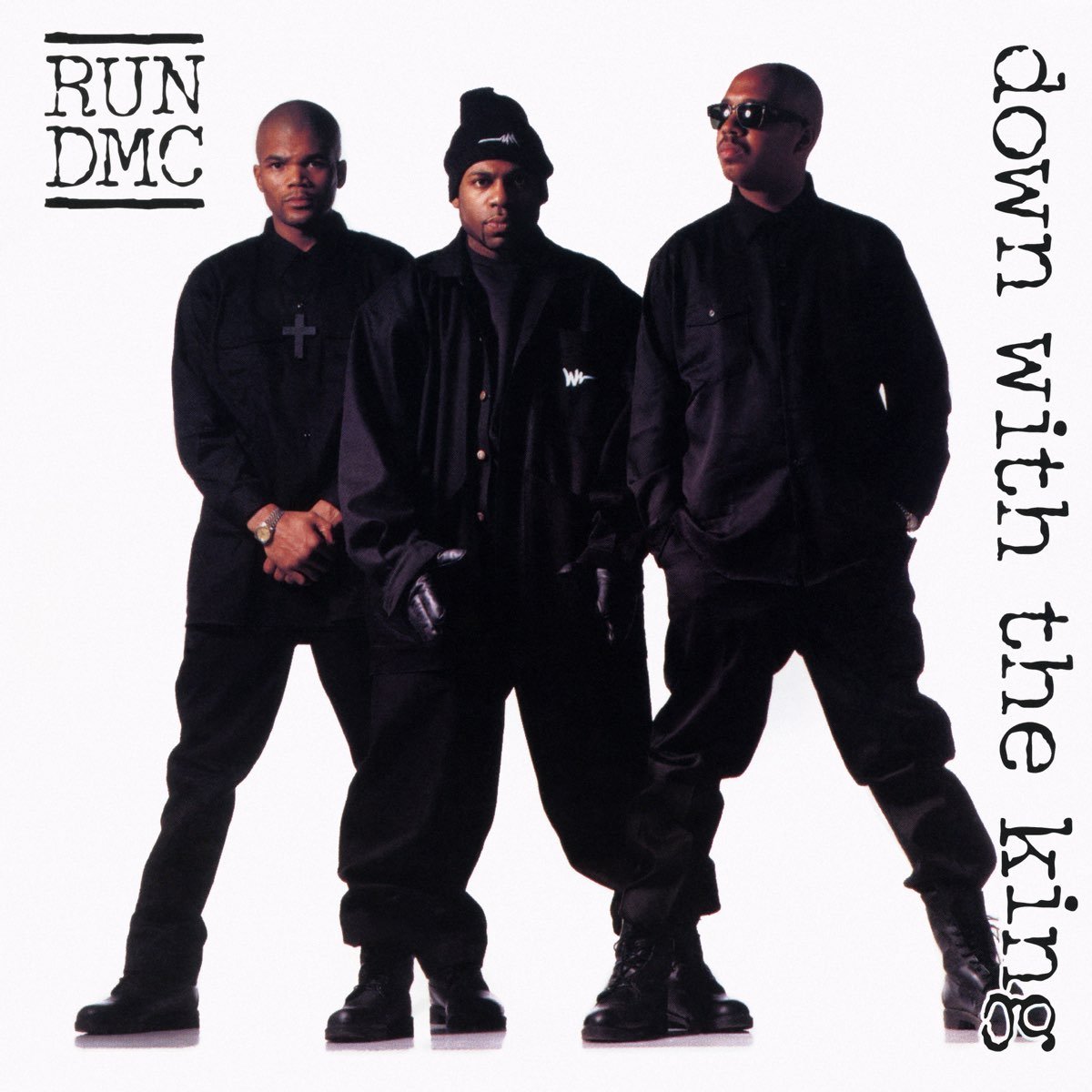Happy 35th Anniversary to Run-DMC’s fourth studio album Tougher Than Leather, originally released May 17, 1988.
Run-DMC was on top of the world after releasing their third and seminal album Raising Hell in 1986. It was certified triple-platinum and was at the time the highest selling hip-hop record of all time. “Walk This Way” was the biggest hit that hip-hop had ever seen. They toured the world with the Beastie Boys. They had their own brand of Adidas sneakers. So, of course, there was nowhere to go but down.
The trio’s follow-up effort Tougher Than Leather, released 35 years ago, was considered a bit of a fall from grace by hip-hop’s kings. Made up of Joseph “Run” Simmons, Daryl “DMC” McDaniels, and Jason “Jam Master Jay” Mizell, the Hollis, Queens-based group was recognized for launching hip-hop music into the modern era with their self-titled debut album Run-D.M.C. released in 1984. Four years and three albums later, people started speculating that they were losing their touch. Though Tougher Than Leather went platinum, it was considered a letdown.
Any idea that Tougher Than Leather was a creative failure is a misguided one. Yes, it isn’t as good as Raising Hell, but Raising Hell is among the 10 best hip-hop albums ever released. The group journeyed outside of their comfort zone, influenced by the great hip-hop being produced by other artists at the time, and released a very good album. It wasn’t one of the ten best hip-hop albums released in 1988, but it’s successful on its own merits.
Tougher Than Leather wasn’t helped by numerous lengthy delays of its release. The album was originally intended as a soundtrack to the critically panned film by the same name, directed by Rick Rubin, co-founder of Def Jam Records (along with Run’s brother Russell Simmons) and Raising Hell’s producer. Despite the lackluster quality of the film, the album itself became the center of a protracted argument between Profile Records, Run-DMC’s home label, and Def Jam Records. The dispute over which of the labels could release the soundtrack soon mutated into Run-DMC’s attempts to leave Profile for Def Jam Records. Both battles proved fruitless, and moreover resulted in Run-DMC extending their deal with Profile for little additional money.
The delay didn’t do the group any favors. Run-DMC may have ended the “old school” period of hip-hop music with the release of their first album, but between 1986, when Raising Hell was released, and the spring of 1988, the music that they helped popularize had a whole new vanguard. Emcees like KRS-One, Rakim, Chuck D, and LL Cool J may have been influenced by Run-DMC, but their rhyming styles were notably different.
All of this led to questions as to whether Run-DMC were behind the times, and may have resulted in the lukewarm response to Tougher Than Leather. Many critics believed that with the album they were trying to recreate the success of Raising Hell by offering carbon copies of their previous hits, while also trying to sound like the new crop of emcees that had been ascending to the top tier during Run-DMC’s absence.
Watch the Official Videos:
Tougher Than Leather had its champions. One of the most prominent people who spoke in its defense was Chuck D, who considers it one of the most misunderstood hip-hop albums ever recorded. While comparing Raising Hell to Wilt Chamberlain’s 100-point performance, he likened Tougher Than Leather to “coming back to score 97 points in a losing playoff game—a spectacular performance against all odds and expectations.”
Run-DMC does adapt their approach to both rhymes and beats on Tougher Than Leather. At the start of their career, Run and DMC were known for their very straightforward A-B, A-B rhyme style. On Tougher Than Leather, perhaps influenced by the other emcees rising to prominence in the mid to late ’80s, their rhyme styles became more complex and their flows more complicated.
The group took a different approach musically as well. Part of this was due to a shift in the group’s production duties. Raising Hell was produced almost entirely by Rick Rubin, who this time around only produced one track. Instead, Davy DMX managed much of the work behind the boards. The DJ and artist first made his name as the partner of Larry Smith, who produced many of Run-DMC’s earliest records. For Tougher Than Leather, Davy DMX used more sampled-based production. He leaned heavily on early Ultimate Beats and Breaks album, and limited the amount of live instrumentation and drum machines, once the hallmark of the group’s earliest albums.
The album starts strong with “Run’s House,” a thundering high-energy jam dedicated to the art of rocking the live show. The album’s second single is seemingly inspired by Run-DMC’s famous performance at Madison Square Garden in late 1986. During the show, Run famously proclaimed, “I beg your pardon, but this is my motherfucking Garden” sending the crowd into a frenzy. This song shares those same sentiments, as the two emcees assert their domination over every stage they set foot upon, turning every arena into their own home court.
Run and DMC stomp across the track like titans, providing, in the words of DMC, that “hard rock, hard hitting, hip-hop hardcore / Causing casualties and catastrophes / And tragedies for the sucker emcees / Using strategies to get the best of me / You dirty rat emcees, whoever you may be.” The blistering loop of James Brown’s “Funky Drummer” break combined with elements of The Soul Searchers “Ashley’s Roachclip” only adds to the track’s grandeur.
“Beats to the Rhyme” captures much of the energy of what made Run-DMC so great. The two MCs rhyme in tandem and trade lines, words, and syllables over a break from Bob James’ “Nautilus,” rocking “these routines like 1983.” Jam Master Jay’s contributions to the track are every bit as essential as Run’s and DMC’s, demonstrating the magnitude of the DJ’s importance to the group’s music. Jay expertly provides his immaculate scratches, bringing in vocal stabs and snippets of lyrics, notes, and sounds. The prevailing legend is that the song was created by Run and DMC recording their vocals, and Jay scratching in the a cappella track over the instrumental, but it’s never been confirmed.
The album’s third single, “Mary Mary,” does certainly echo the feel of both “Walk This Way” and “It’s Tricky” from the Raising Hell album. Run and DMC rhyme over the introductory drum break to The Monkees’ song of the same name. However, instead of the two reciting the lyrics from the original song, they relate numerous tales of various women who live fast and fall on hard times. On a similar note, “Papa Crazy” is the group’s reinterpretation of the Temptations’ “Papa Was a Rolling Stone.” Both emcees tell the tale of fictional fathers who abandoned their families to get high on the proverbial hog, yet ultimately die young.
Enjoying this article? Click/tap on the album covers to explore more about Run-DMC:
Run-DMC continued to excel at beats and lyrics-styled hip-hop. On “They Call Us Run-DMC,” the two emcees flex a sort of start and stop flow over Juice’s “Catch a Groove,” furious scratches by Jay, and a full-throated beat-box by Run. On “I’m Not Going Out Like That,” the album’s first single, the duo utilize intricate rhyme patterns and rapid-fire flow over an almost House-like beat. “How’d You Do It Dee?” finds the group again in their sweet spot: trading lines and melding their voices together over almost ghostly samples from The Meters’ “Here Comes the Meter Man.”
The crew addresses their absence head-on with “Radio Station,” assuring their fans that they will again dominate the radio waves. Though you can definitely hear the influences of artists like Rakim in both Run and DMC’s flows, the pair’s swinging delivery keeps things moving over the Gaz “Sing Sing” drum break. Run describes the group as “hotter than a fire, kings going higher / Told you on the album, that we require / To be tougher than, nobody rougher when / Run-D.M.C., throwin' down like a Bufferin.”
Run-DMC didn’t abandon its hard-rocking sound on Tougher Than Leather by any means. The group remains one of the best hip-hop groups ever to rhyme amidst blaring electric guitars. The best of these songs is the title track, which has the feel of tracks like “Rock Box” or “Raising Hell,” with Daryl and Joe holding court, laying down lyrics that rhyme within each stanza. While Run raps, “Put down the clown, get 'round the town / I found the sound and I'll pound the ground,” DMC counters with, “I got to go for broke, and I ain’t no joke / I won’t yoke and choke, ’cept the suckers I smoked.”
“Ragtime” is a unique entry into their discography. For one, the two rhyme over New Orleans brass-band style horns, which most rappers even today would never even attempt. For another, the song is conveyed as a straightforward story rhyme, which is a format that the group rarely used. It’s apparent that their approach was heavily influenced by Slick Rick and Dana Dane, given the over-exaggerated faux British accent Run uses throughout the song. It’s an entertaining endeavor, as DMC explains his compulsion to rhyme wherever he goes, while Run details the freedom of the crew rolling down the streets of Queen in their ’66 Oldsmobile. The track’s ending saxophone solo is an odd but interesting touch.
Though Tougher Than Leather is an underrated success, things didn’t get better for the group in the near future. Run-DMC hit their rock bottom with Back From Hell (1990). If fans thought Run-DMC sounded odd channeling Rakim or Slick Rick, they weren’t prepared for the fiasco of Hollis, Queens’ finest trying to ride the New Jack Swing wave. Even Chuck D didn’t speak up on the album’s behalf.
The group cratered, with DMC plunging into alcoholism and Run and Jay dealing with various other personal issues. Run eventually underwent a spiritual awakening, and the group pulled themselves together and released Down With the King in 1993. The album was an effort by Run-DMC’s descendants to “save” the group, with featured production and contributions from artists like Pete Rock & C.L. Smooth, A Tribe Called Quest, and EPMD. Even though Down With the King went platinum, it is worth noting that instead of sounding like Wreckx-N-Effect, Run-DMC adopted the sound and aesthetic of crews like Onyx and Das EFX.
It can be tough to watch our legends get older. In the early stages of a genre’s development, what defines cool can become dated just a year later, and the pioneers end up scrambling so that they aren’t left behind. But regardless of where Run-DMC ended up, Tougher Than Leather does not deserve the lackluster reputation that it received. It was a dope hip-hop album released during a year that featured many game-changing hip-hop albums. There’s nothing wrong with that.
LISTEN:
Editor's note: this anniversary tribute was originally published in 2018 and has since been edited for accuracy and timeliness.





